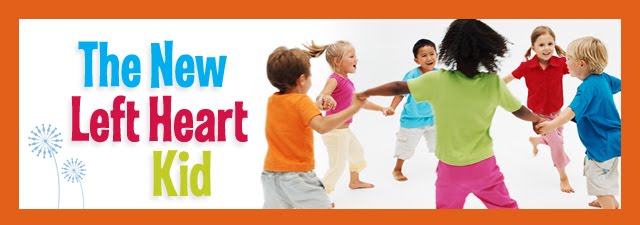Whether your child is 2 months old, 2 years
old, or 12 years old, dealing with a serious heart defect like Hypoplastic Left
Heart Syndrome can be overwhelming; you don't have to go it alone. A support
group can help, and through the internet and social media today there are so
many opportunities to reach out for that support.
Support groups bring together people facing
similar issues. Members of support groups often share experiences and advice.
It can be helpful just talking with other people who are in the same
boat. While not everyone wants or needs support beyond that offered by family
and friends, you may find it helpful to turn to others outside your immediate
circle. A support group can help you cope better and feel less isolated as you
make connections with others facing similar challenges. A support group
shouldn't replace your standard medical care, but it can be a valuable resource
to help you cope.
Understanding support groups
Support groups also come in a variety of
formats, including in person, on the Internet or by telephone. They may be led
by professionals — such as a nurse, social worker or psychologist — or by parents.
Some groups are educational and structured. For example, the group leader may
invite a doctor, psychologist, nurse or social worker to talk about a topic
related to the group's needs. Other support groups emphasize emotional support
and shared experiences.
Benefits of support groups
Regardless of format, in a support group you'll
find people with problems similar to yours. Members of a support group
typically share their personal experiences and offer one another emotional
comfort and moral support. They may also offer practical advice and tips to
help you cope with your situation. There are many benefits of participating in
support groups:
- · Feeling less lonely or isolated
- · Gaining a sense of empowerment and control
- · Improving your coping skills and sense of adjustment
- · Talking openly and honestly about your feelings
- · Reducing stress or anxiety
- · Developing a clearer understanding of what to expect when caring for your child
- · Comparing notes about resources, such as doctors and treatment centers
Finding a support group
- · Ask your doctor or other health care provider for assistance. Your doctor, nurse, or social worker may be able to recommend a support group for you.
- · Look in your local telephone book or check your newspaper for a listing of support resources. Community centers, libraries, or religious institutions may also be able to recommend a support group for you.
- · Search the Internet. Online support groups are available as email lists, newsgroups, chat rooms, blogs and social networking sites like Facebook, Twitter and Pinterest. A search on Facebook will provide a great number of local and national groups that provide support to parents of children with HLHS.
The life of a parent of a child with Hypoplastic
left heart is blessed, as our children are strong, unique, and wondrous; but oftentimes
it may also be filled with fear, anxiety and isolation. Reach out for support
if you need it. I have found that it’s usually just a phone call or a click
away.
Best Wishes for a happy holiday and may you
have joy and peace in the years to come,
Julie
